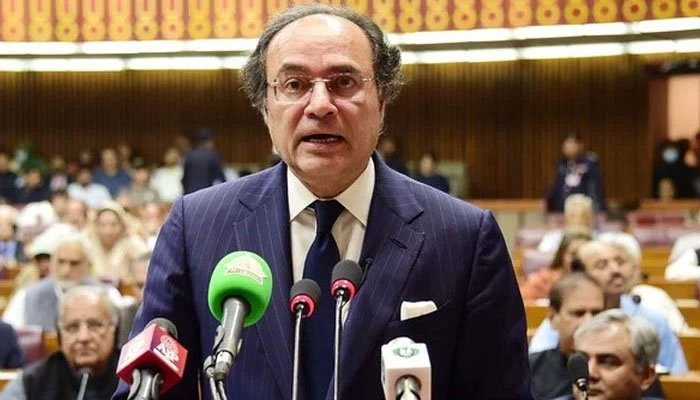Budget 2024-25: heavy on taxes, light on reforms
It continues to tax those who are already overtaxed, while completely turning a blind eye towards expanding the tax net
BUDGET 2024-25 has become final, with the Finance Bill 2024 sailing through the National Assembly. Unfortunately, it doesn’t do much, is unimaginative, and reminds one of previous budgets. It continues to tax those who are already overtaxed, while completely turning a blind eye towards expanding the tax net.
Instead of widening the tax bracket, it has focused on deepening the tax net. And instead of being equitable, it has increased taxes on the already stressed salaried class, which has lost almost half of its purchasing power in the last five years, while reducing taxes on banks, which have been posting record profits. The reduction in taxes on banks is largely a function of the incessant reliance of the government to borrow from banks to bridge its fiscal deficits.
The budget continues to be inflationary through an increase in expenditure across all areas, including discretionary expenditures for members of parliament. There is little regard for controlling expenditure, and that continues to be financed by taxing the already taxed. The sheer disregard for overtaxing the taxed can be assessed by the imposition of sales tax on infant formula milk, as well as on packaged milk.
This is in an environment where 40 per cent of children under the age of five are stunted, while malnourishment is prevalent across the board. By imposing a tax on packaged milk, the government has sent a clear signal that consumers should opt for loose milk, disincentivizing any processing of the same. This would inadvertently lead to an increase in milk prices, further creating space for more malnutrition.
There is no coherent theme for the budget, other than opening up the coffers for more discretionary expenditures while creating little space or incentive for any investment-led growth. The country has been de-industrializing over the years, and the budget ensures that the process continues, effectively favouring traders more than actual producers.
In similar spirit, it continues to penalize existing taxpayers by further increasing their burden. The salaried class has lost more than 45 per cent of its purchasing power over the last five years – it will continue to lose more through more aggressive taxation. It is ironic that first the salaried taxpayer loses out on purchasing power due to the incessant obsession of the government with running deficits, and then it is taxed again to cover the same deficits that the government couldn’t control due to the inability to expand the tax net or reduce expenditure.
The budget is for a few hundred rent-seekers, who continue to benefit from a reckless and irresponsible fiscal regime. The sheer lack of interest in widening the tax net or reducing expenditure is appalling. Even though there are greenshoots in terms of some reforms, and reduction of losses in state-owned enterprises, a reckless fiscal approach will only alienate the people and perpetuate an environment of helplessness. A lopsided taxation structure will only accelerate the brain drain, as the incentive to operate in the formal economy is minimal while there is tremendous incentive to operate informally in a cash economy.
The country needs to stabilize; this cannot happen through a reckless expenditure regime while penalizing those who are actually overtaxed. Paying developed world taxes for dismal infrastructure and social services creates an environment where businesses and individuals alike may move their capital away. The economy needs to be retooled from a consumption-oriented economy to an investment-oriented economy – the budget does absolutely nothing to enable this transition. If anything, it increases government consumption financed by the usual suspects or taxpayers.
-
 Will Smith, Jada Pinkett's Marriage Crumbling Under Harassment Lawsuit: Deets
Will Smith, Jada Pinkett's Marriage Crumbling Under Harassment Lawsuit: Deets -
 'Fake' Sexual Assault Report Lands Kentucky Teen In Court
'Fake' Sexual Assault Report Lands Kentucky Teen In Court -
 'Vikings' Star Shares James Van Der Beek's Birthday Video After His Death
'Vikings' Star Shares James Van Der Beek's Birthday Video After His Death -
 Jennifer Aniston Receives Public Love Note From Jim Curtis On 57th Birthday
Jennifer Aniston Receives Public Love Note From Jim Curtis On 57th Birthday -
 Microsoft AI Chief Says AI Will Replace Most White-collar Jobs Within 18 Months
Microsoft AI Chief Says AI Will Replace Most White-collar Jobs Within 18 Months -
 Late Virginia Giuffre’s Brother Reacts To King Charles’ Promise Against Andrew Mountbatten-Windsor
Late Virginia Giuffre’s Brother Reacts To King Charles’ Promise Against Andrew Mountbatten-Windsor -
 Ex-Arsenal Footballer Thomas Partey Charged With Additional Rape Counts
Ex-Arsenal Footballer Thomas Partey Charged With Additional Rape Counts -
 AI Regulation Battle Heats Up: Anthropic Pledges $20m To Rival OpenAI
AI Regulation Battle Heats Up: Anthropic Pledges $20m To Rival OpenAI -
 Queen Camilla Makes Poignant Visit To Police Stations To Inspect Work
Queen Camilla Makes Poignant Visit To Police Stations To Inspect Work -
 Chloe Kim Set For Historic Halfpipe Gold Showdown At Milano Cortina
Chloe Kim Set For Historic Halfpipe Gold Showdown At Milano Cortina -
 Brooklyn Beckham Gives Cold Response To Cruz's Olive Branch Amid Feud
Brooklyn Beckham Gives Cold Response To Cruz's Olive Branch Amid Feud -
 Woman Arrested Months After Allegedly Staging Husband’s Murder As Suicide
Woman Arrested Months After Allegedly Staging Husband’s Murder As Suicide -
 Senior US Politician Makes Formal Accusation Against Andrew As Woman Under Him Is Sex Trafficked
Senior US Politician Makes Formal Accusation Against Andrew As Woman Under Him Is Sex Trafficked -
 X Product Head Warns AI Spam Can Make IMessage And Gmail Unusable
X Product Head Warns AI Spam Can Make IMessage And Gmail Unusable -
 Tyler Childers, Wife Senora May Expecting Second Baby
Tyler Childers, Wife Senora May Expecting Second Baby -
 ‘Smiling Electrons’ Discovered In Earth’s Magnetosphere In Rare Space Breakthrough
‘Smiling Electrons’ Discovered In Earth’s Magnetosphere In Rare Space Breakthrough




